Penn Memory Center Leadership
Directors
Jason Karlawish, MD

Dr. Jason Karlawish is a professor of medicine, medical ethics and health policy, and neurology at the University of Pennsylvania Perelman School of Medicine. He is board-certified in geriatric medicine. He was educated at Northwestern University, the Johns Hopkins Medical Institutions, and the University of Chicago.
Dr. Karlawish is a Senior Fellow of the Leonard Davis Institute of Health Economics, Senior Fellow of the Penn Center for Public Health Initiatives, fellow of the University of Pennsylvania’s Institute on Aging, director of the Penn Program on Precision Medicine for the Brain (P3MB), Co-Associate Director of the Alzheimer’s Disease Research Center, and co-director of the Penn Memory Center. He is also director of the Alzheimer’s Disease Research Center’s Outreach, Recruitment and Education Core and the center’s Research Education Component.
His research focuses on aging, neuroethics, and policy. He has investigated issues in dementia drug development, informed consent, quality of life, paradoxical lucidity and theory of mind in dementia, research and treatment decision-making, and voting by persons living with dementia. He is the project leader of makingsenseofalzheimers.org, a creative space for understanding the past, present and future of Alzheimer’s disease. He is the author of The Problem of Alzheimer’s: How Science, Culture and Politics Turned a Rare Disease Into a Crisis and What We Can Do About It, and the novel Open Wound: The Tragic Obsession of Dr. William Beaumont. His essays on ethics and aging have appeared in The Hill, The New York Times, Philadelphia Inquirer, STAT News, and The Washington Post. To learn more about his research and writing, visit www.jasonkarlawish.com.
Dr. Karlawish is not accepting new patient appointments at this time.
David Wolk, MD

Dr. David Wolk is Professor of Neurology, Chief of the Division of Cognitive Neurology, Director of the National Institute of Aging funded Penn Alzheimer’s Disease Research Center, Co-Director of the Penn Institute on Aging, and Co-Director of the Penn Memory Center.
Dr. Wolk’s primary clinical interest has been in the diagnosis and care of individuals with a variety of neurodegenerative conditions. His research has focused on the cognitive neuroscience of memory decline associated with aging and Alzheimer’s Disease using techniques including behavioral testing, structural and functional MRI, and FDG and molecular PET imaging. Much of this work is also directed at examining biomarkers, including behavioral and neuroimaging, that differentiate healthy aging from the earliest transition to AD and their potential role in understanding disease mechanisms and incorporation into treatment trials. Another related thread of his work has been to better understand, classify and predict sources of heterogeneity in AD. Dr. Wolk has had sustained NIH support since 2003 and has been the principal or co-investigator on numerous local, national and international studies, including therapeutic trials.
Dr. Wolk completed his medical training at Johns Hopkins University, a Neurology residency at the University of Pennsylvania, and clinical Fellowship training in Cognitive and Behavioral Neurology at Brigham and Women’s Hospital/Harvard Medical School; where he also completed a post-doctoral research fellowship studying memory in Alzheimer’s Disease. Amongst a number of honors, he is the recipient of the American Academy of Neurology’s Norman Geschwind Prize in Behavioral Neurology.
Dr. Wolk is not accepting new patient appointments at this time.
Executive Director
Back to TopPhysician Researchers
Roy H. Hamilton, MD, MS
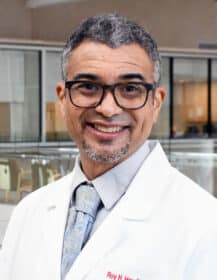
215-662-7810
roy.hamilton@pennmedicine.upenn.edu
Dr. Roy H. Hamilton is a professor of neurology, psychiatry, and physical medicine and rehabilitation at the University of Pennsylvania Perelman School of Medicine. He is board certified in neurology.
He graduated from Harvard University Medical School and the Massachusetts Institute of Technology with degrees in medicine and health sciences technology. He completed residency in neurology and a fellowship in cognitive and behavioral neurology at the University of Pennsylvania Perelman School of Medicine.
In addition to evaluation and care he provides patients through the Penn Memory Center, Dr. Hamilton is actively engaged in neuroscience research. The central aim of his research is to define the mechanisms and limits of functional plasticity in the intact and injured adult human brain. As the director of the Laboratory for Cognition and Neural Stimulation at Penn, Dr. Hamilton uses a combination of behavioral measures and noninvasive brain stimulation techniques, including transcranial magnetic stimulation (TMS) and transcranial direct current stimulation (tDCS), to elucidate structure-function relationships related to normal cognition and to promote therapeutic reorganization of neural representations of cognitive functions in individuals who have suffer from post-stroke cognitive deficits and neurodegenerative dementias.
Outside of his research, Dr. Hamilton is deeply involved in issues related to diversity in medicine, inclusion, and health equity, and serves as the Vice Dean for Inclusion, Diversity, and Equity for the Perelman School of Medicine.
Jeffrey Maneval, MD
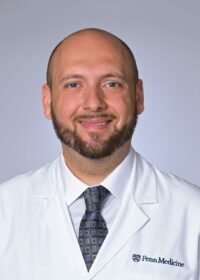
jeffrey.maneval@pennmedicine.upenn.edu
Dr. Jeffrey Maneval is a board-certified neurologist. Dr. Maneval is an assistant professor of neurology at the University of Pennsylvania, Perelman School of Medicine. He completed fellowship training in behavioral neurology with an emphasis on Alzheimer’s disease and the related diseases, the mind-body connection, and the links between neurologic and psychiatric illnesses.
Dr. Maneval graduated from Carleton College with a degree in psychology, and worked as a mental health technician at Hennepin County Medical Center. He studied medicine at Jefferson Medical College and completed his neurology residency at the University of Vermont Medical Center. He completed his UCNS-certified fellowship in Behavioral Neurology and Neuropsychiatry at Brigham and Women’s Hospital in Boston, MA, an affiliate hospital of Harvard Medical School.
Dr. Maneval is engaged in clinical care, clinical research, and medical education — training medical students, neurology residents, and fellows to become leaders and innovators.
Dr. Maneval is accepting new patient appointments through the Penn Memory Center. To schedule an appointment, call 215-662-7810.
Sara Manning Peskin, MD, MS

215-662-3606
Dr. Sara Manning Peskin received her undergraduate degree in biochemistry from Harvard University, where she graduated magna cum laude prior to moving to Philadelphia. She received her doctor of medicine, along with a master’s degree in cellular and molecular biology, from the University of Pennsylvania. She went on to complete residency and fellowship in neurology at the Hospital of the University of Pennsylvania, where she now works both in the Penn Memory Center and the Penn Frontotemporal Dementia Center. She’s particularly interested in narrative medicine and teaching the lay public about neurologic afflictions. She has published work in The New York Times and The Boston Globe Magazine. In 2022, her book “A Molecule Away From Madness: Tales of the Hijacked Brain” was published.
Dr. Manning Peskin is accepting new patient appointments through the Penn Memory Center. To schedule an appointment, call 215-662-7810.
Lisa Walke, MD

lisa.walke@pennmedicine.upenn.edu
Dr. Walke is the William Maul Measey –Truman G. Schnabel, Jr., M.D. professor of geriatric medicine and gerontology and Chief of the Division of Geriatric Medicine at the University of Pennsylvania Perelman School of Medicine. Her scholarship focus is the development, implementation and analysis of innovative models of care for older adults.
She earned an undergraduate degree in Sociology from Harvard University, a medical degree from the Mount Sinai School of Medicine and a master’s degree in Healthcare Administration from the University of New Haven. She was an Internal Medicine resident at Montefiore Medical Center and a Geriatric Medicine and Clinical Epidemiology fellow at Yale before serving on the Yale faculty from 2003-2018. She became an American Geriatrics Society (AGS) fellow in 2014 and was named AGS Outstanding Mid-Career Clinician Educator of the Year in 2017. She serves on the Association of Directors of Geriatric Academic Programs Board since 2019 and the American Board of Internal Medicine Geriatric Medicine Board since 2020.
Dr. Walke is accepting new patient appointments through the Penn Memory Center. To schedule an appointment, call 215-662-7810.
Sanjeev Vaishnavi, MD, PhD
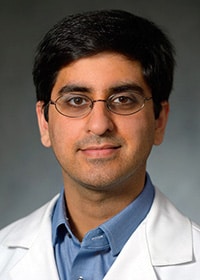
215-662-7810
sanjeev.vaishnavi@pennmedicine.upenn.edu
Dr. Sanjeev Vaishnavi is an associate professor of neurology, Director of Clinical Research at the Penn Memory Center, Director of the Penn Cognitive & Behavioral Neurology Fellowship Training Program, and Clinical Director for the Division of Cognitive Neurology at the University of Pennsylvania, Perelman School of Medicine. He is board certified in neurology and has fellowship training in cognitive neurology with an emphasis on Alzheimer’s disease and related diseases.
Dr. Vaishnavi graduated from Georgia Institute of Technology with a bachelor’s of science in applied biology and then studied medicine (doctor of medicine) and completed doctoral training (doctor of philosophy in neuroscience) at Washington University in St. Louis as part of the Medical Scientist Training Program (MSTP). He then came to the University of Pennsylvania, Perelman School of Medicine to train in neurology, including a UCNS-certified fellowship in cognitive and behavioral neurology.
Dr. Vaishnavi specializes in the diagnosis and treatment of older adults with cognitive impairment and dementia, including Alzheimer’s disease and other neurodegenerative conditions, and training medical students, neurology residents, and fellows to be the next generation of leaders. His research has focused on using advanced imaging techniques including functional connectivity MRI and PET to understand learning and aging related changes in the resting human brain, and at the Penn Memory Center, he does clinical research to discover better ways to diagnose and treat neurodegenerative diseases, with an emphasis on early diagnosis and prevention.
Dr. Vaishnavi is accepting new patient appointments through the Penn Memory Center. To schedule an appointment, call 215-662-7810.
Research Physician Assistant
Patricia Salley, PA-C

patricia.salley@pennmedicine.upenn.edu
Patricia Salley is a certified physician assistant. Patricia was born and raised in the Philadelphia area and received a bachelor’s of science degree in rehabilitative services from the University of Maryland Eastern Shore. Patricia then completed the physician assistant program at Drexel University. Patricia has worked primarily in underserved areas and with patients and families with dementia, including her own father who had Lewy Body Dementia. Patricia’s goal is to continue to provide clinical support to those families and caregivers on their dementia journey and to engage in providing research opportunities to underrepresented communities to help address disparities in dementia research.
Clinical Fellows
Bianca Cavedoni-Urbano, MD
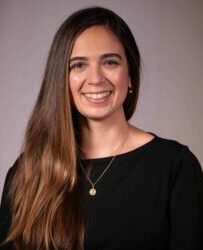
Dr. Bianca Cavedoni-Urbano is a PMC Behavioral Neurology and Neuropsychiatry clinical fellow. Originally from Maracaibo, Venezuela, she earned her medical degree at La Universidad del Zulia. Driven by her passion for neurology, she continued her training in the United States, completing a residency in Neurology at Temple University in Philadelphia. Fluent in Spanish and English, she effectively communicates with a broad range of patients. Her clinical and research interests focus on pure cognitive disorders and those associated with movement disorders. Her commitment to medicine is matched by her dedication to community service. She actively collaborates with teams at the Parkinson and Movement Disorders Alliance, participates in fundraising events for the ALS Hope Foundation, and is interested in decreasing healthcare disparities in the Hispanic community.
Affiliated Clinicians
Emily Kulpa, DO

Dr. Emily Kulpa is a University of Pennsylvania geriatric psychiatry fellow originally from Connecticut. She received her undergraduate degree from the University of Denver and medical degree from New York Institute of Technology’s College of Osteopathic Medicine. Dr. Kulpa graduated from Mountain Area Health Education Center’s psychiatry residency program in Asheville, NC where she was Chief Resident of Education. Dr. Kulpa’s professional interests include end of life care and improving caregiver support.
Isabelle Duerr, MD

Dr. Isabelle Duerr is a geriatric psychiatry fellow at the University of Pennsylvania. She received her bachelor’s degree from the College of William and Mary, where she majored in biology and minored in public health. She completed both psychiatry residency and medical school at the University of Virginia in Charlottesville, Virginia. During residency training she was heavily involved in supporting resident wellness, becoming president of the Psychiatry Resident Wellness Committee during her final year, and participated in the American Association of Geriatric Psychiatry’s annual Scholars Program.
Arushi Kapoor, MS, MD

arushi.kapoor@pennmedicine.upenn.edu
Dr. Arushi Kapoor is dual board-certified in geriatric and adult psychiatry. She is also the director of the Geriatric Psychiatry Fellowship at the University of Pennsylvania. She completed her fellowship at Perelman School of Medicine at the University of Pennsylvania. She completed her psychiatry residency at Howard University Hospital, Washington D.C., where she earned “Outstanding Resident Service” and “Psychiatry Senior Resident Research” awards. She completed her bachelor’s degree at UC Davis California and a combined master’s and medical degree at Saba University School of Medicine. Throughout her residency, she was in leadership and advocacy roles as the resident fellow representative at the local APA chapter and leader of the Committee of Interns and Residents. Her research interests are in collaboration and access to geriatric psychiatric care.
In addition to her clinician role at the Penn Memory Center, Dr. Kapoor spends her time at the Veteran Affairs Medical Center as a “geriatric champion” on the Bronze Team. She has assisted with establishing a geriatric psychiatry clinic as part of the outpatient services to focus on cognitive impairment and age-related mental health disorders. She has provided tutorials and seminars on caregiver burden and dementia education to several staff and colleagues as part of her dedicated role in teaching.
Dr. Kapoor serves as a consultant to VA’s Home-Based Primary Care (HBPC) providers to assist veterans limited to home care with mental health crises. She also works at the Community Living Center (CLC), a long-term care living facility for veterans, and has been an active member of the STAR-VA treatment planning and engagement services.
Dr. Kapoor is accepting new patient appointments through the Penn Memory Center. To schedule an appointment, call 215-662-7810.
Jenny Rodriguez, MD

Dr. Jenny Rodriguez, a board certified Geriatric and adult psychiatrist, is an assistant professor of clinical psychiatry at the Perelman School of Medicine at the University of Pennsylvania. She did her residency and fellowship training at the University of Miami, where she was involved in geriatric clinical care at the Center on Aging. Dr. Rodriguez worked as medical director of the geriatric psychiatry unit at McNeal Hospital in Berwyn, Illinois, and was the Clinical Director of the acute inpatient psychiatry unit at Hartgrove Behavioral Health Hospital in Chicago.
Her practice has been dedicated to the care of older adults, with multiple age-related mental health disorders such as delirium, dementias, depression, mood disorders of later life, anxiety disorders, psychosis, alcohol and substance abuse, personality disorders, and bio-psycho-social problems. She has provided psychotherapy to aging adults and their families, as well as long-term psychiatric care and consultation liaison services.
Dr. Rodriguez currently works at the Outpatient Psychiatry Center where she specializes in the diagnosis and treatment of mental illness in older adults, and in patients with cognitive impairment and dementia, including depression, bipolar disorder, anxiety, late-onset schizophrenia, and certain other medical conditions. She also trains psychiatry residents and geriatric fellows.
Dr. Rodriguez is accepting new patient appointments through the Outpatient Psychiatry center. To schedule an appointment, call 215-746-6702.
Maggie Tubiello MBA, MSN, RN, CCRN
Maggie Tubiello is a program coordinator in the department of neurology for the new Lecanemab program. She graduated with a BSN from Pennsylvania College of Technology and recently graduated from Bloomsburg University with dual master’s degrees in business administration and science in nursing. Tubiello worked as a staff nurse for 1.5 years in a Neuro ICU in North Carolina before moving back to PA to start travel nursing. She has been an ICU travel nurse for 4 years before working for Penn Medicine.
Christopher M. Clark Scholars
Tifani Biro, MS, PhD
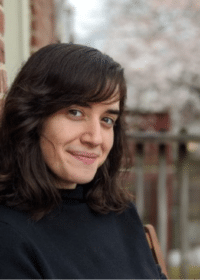
tifani.biro@pennmedicine.upenn.edu
Dr. Tifani Biro is a Penn Memory Center Clark Scholar and a post-doctoral fellow at the University of Pennsylvania (LCNS) and Moss Rehabilitation Research Institute through the NIH T32 fellowship program in translational neuroscience and neurorehabilitation research. Dr. Biro received her dual-title PhD in communication sciences & disorders and language science from Pennsylvania State University in 2021. Her research program involves applying theory and techniques developed from basic research inquiries, such as how the mental lexicon is accessed and organized, to the treatment and understanding of communication differences and disorders. Dr. Biro’s research at the LCNS involves taking a psycholinguistic approach towards understanding how multilingualism, neurodegeneration, and neurostimulation influence lexical errors among individuals with primary progressive aphasia.
Christopher Brown, MD, PhD
Victor Ekuta
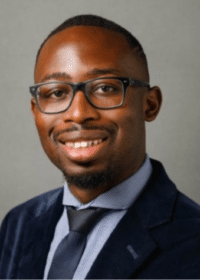
Ekuta earned a BA in biology and philosophy-neuroscience-psychology (PNP) from Washington University in St. Louis in 2011. Following graduation, he completed a post-baccalaureate Intramural Research Fellowship at the National Institute of Mental Health before beginning medical school. In the future, Ekuta plans to specialize in academic neurology as a physician-scientist-advocate, employing novel approaches to treat human brain disease, combat health disparities, and boost diversity in STEM.
Claire Erickson PhD, MPA

claire.erickson@pennmedicine.upenn.edu
Claire Erickson is a Clark Scholar at Penn Memory Center. She completed her training at the University of Wisconsin-Madison in the Neuroscience and Public Policy program. She conducted her thesis work at the Wisconsin ADRC and Wisconsin Registry for Alzheimer’s Prevention (WRAP) focusing on return of PET scan results to cognitively healthy older adults. Erickson is excited to continue working on topics related to returning AD biomarker information to participants and patients.
Michael Guo, MD, PhD

Xueying Lyu

717-371-5612
xylyu@seas.upenn.edu
Xueying Lyu is a bioengineering PhD student at Penn co-advised by Dr. Dave Wolk and Dr. Paul Yushkevich. She received her bachelor’s degree from Franklin & Marshall College with a major in chemistry. As an undergraduate, she conducted inorganic chemistry research on the structure of carbonate apatite. After graduating from college, she joined the Yale PET Center working with Dr. Jason Cai to study SV2A PET imaging of stroke rat models for a year and determined to further study biomarkers of brain imaging. During her Ph.D. career, Lyu is looking forward to exploring the relationships of biomarkers for Alzheimer’s disease using data-driven and engineering methods.
Ellen Munsterman, MSN, APRN, AGCNS-BC

ellen.munsterman@pennmedicine.upenn.edu
Catherine Norise, MD, MTR

catherine.norise@pennmedicine.upenn.edu
Catherine Norise is a Penn Memory Center Clark Scholar.
Dr. Norise joined the Penn Memory Center in 2017 as a student researcher for the Penn Minority Scholars in Aging Research program under the supervision of Dr. Roy Hamilton. She received her bachelor’s degree in biology with a minor in Japanese from Haverford College in 2011. She received her medical degree and master’s of science in translational research (MTR) from the University of Pennsylvania. Her research interests focus on the therapeutic potential of neuromodulation in language disorders. Most recently, Norise was a clinical fellow at PMC.
Kyra S. O’Brien, MD
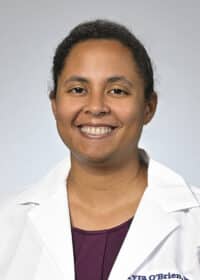
215-662-7810
kyra.o’brien@pennmedicine.upenn.edu
Dr. Kyra O’Brien is an assistant professor of neurology at the University of Pennsylvania Perelman School of Medicine. She is board certified in neurology. She completed fellowship training in cognitive neurology with an emphasis on Alzheimer’s disease and related dementias. Dr. O’Brien graduated from Yale University with a degree in biology. She completed medical school, neurology residency, and a cognitive neurology fellowship at the University of Pennsylvania Perelman School of Medicine. Dr. O’Brien specializes in the diagnosis and treatment of older adults with memory disorders. Her research examines methods to improve patient care via early detection of cognitive impairment and early diagnosis of Alzheimer’s disease.
Emma Rhodes, PhD, MA
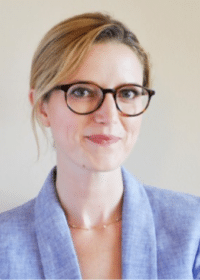
emma.rhodes@pennmedicine.upenn.edu
Emma Rhodes is a Clark Scholar and an instructor and clinical neuropsychologist in the Frontotemporal Degeneration Center at the University of Pennsylvania. She completed her PhD in clinical psychology at Temple University, predoctoral internship in neuropsychology at UCSD, and postdoctoral fellowship in geropsychology and neuropsychology at UCSF/San Francisco VA Medical Center. Dr. Rhodes’ research focuses on mechanisms of neuropsychiatric symptoms in neurodegenerative disease, with an emphasis on digital measurement of social and emotional dysfunction in bvFTD. In clinic, she conducts comprehensive neuropsychological assessments of patients with a wide range of neurologic and psychiatric conditions and strives to conduct research that is clinically informed and meaningful for patients and their families.
Postdoctoral Researchers
Back to TopPsychosocial Services
Jennifer Nguyen, MSW, LSW

267-738-7601
Jennifer.Nguyen1@pennmedicine.upenn.edu
Jennifer Nguyen is a licensed social worker at the Penn Memory Center. Nguyen provides support and education to patients and their loved ones impacted by a dementia diagnosis. She also supports PMC programming. Nguyen received her bachelor’s degree in Behavioral Health Counseling from Drexel University in 2017 and her master’s degree in Social Work from University of Pennsylvania in 2023. Nguyen completed her social work training at a post-acute care center in New Jersey supporting older adults in rehabilitation and at an outpatient mental health practice in Philadelphia providing psychotherapy. Prior to PMC, Nguyen also worked at Penn Center for Mental Health for over 4 years providing early intervention services to preschool aged children with developmental delays.
Rachel Marx, MSW, LSW

215-520-7468
Rachel.Marx@Pennmedicine.upenn.edu
Rachel Marx is a social work fellow at the Penn Memory Center. Marx runs the Short-Term Supportive Counseling, providing emotional support and psychotherapy to patients and their loves loved ones impacted by diagnosis. Marx received her Masters in Social Work in 2023 from Penn’s School of Social Policy and Practice. While at Penn, she completed her advanced year fieldwork as a social work intern at the Memory Center. Prior to graduate school, she worked in a variety of capacities in the fields of education and public planning. She received her bachelor’s degree in 2015 from the University of Pittsburgh in Urban Studies and Creative Writing.
Amanda Bloom

Amanda.Bloom@Pennmedicine.upenn.edu
Amanda Bloom is a clinical social work intern at Penn Memory Center, where she works on social programs. She is a first-year student in the MSW program at The University of Pennsylvania and is originally from New Jersey. Bloom recently graduated from Muhlenberg College where she received a degree in psychology and a Pre-K – 4 Teaching Certification.
Leah Fein, MPH, LCSW

267-240-5571
Leah.fein@pennmedicine.upenn.edu
Leah Fein is an associate director of social work at the Penn Memory Center. Fein provides support and education to patients and their loved ones impacted by a dementia diagnosis. She also supports PMC programming such as Memory Cafés, caregiver classes, and support groups.
Prior to her working with the social work team, she was an intern with the PMC communications team. Additionally, Fein worked in Pittsburgh at their Area Agency on Aging as a case manager with older adults, arranging their in-home services and supporting transitions of care. She received her bachelor’s degree in social work from University of Pittsburgh and her master’s degrees in social work and public health from University of Michigan. She completed her social work training at Michigan Medicine in their geriatric primary care clinic.
Meg Kalafsky, MHCI

267-624-4282
megan.kalafsky@pennmedicine.upenn.edu
Meg Kalafsky is the Associate Director of Social Programs. Kalafsky joined the Penn Memory Center in 2019 and provides supportive and educational programming for patients and their loved ones impacted by a dementia diagnosis. Kalafsky earned her bachelor’s of psychology and sociology from Duquesne University in 2011 and master’s of Health Care Innovation from the University of Pennsylvania Perelman School of Medicine in 2023.
Alison Lynn, MSW, LCSW

267-239-1968
alison.lynn@uphs.upenn.edu
Alison Lynn is a licensed clinical social worker and the director of social work at the Penn Memory Center. Lynn has been at the PMC since 2015 providing support, education, and psychotherapy to patients and families affected by a diagnosis of Alzheimer’s disease and related dementias. Lynn also plans and runs PMC programming such as its monthly Memory café, twice-yearly Caregiver Class, and monthly caregiver support groups; and supervises master’s level social work interns from the University of Pennsylvania School of Social Policy and Practice. Lynn holds a bachelor’s of arts in sociology from Kenyon College and a master’s in social work from the University of Pennsylvania, and completed her social work training at the Penn Memory Center and the Penn Division of Geriatric Psychiatry. Prior to her work in Philadelphia, Alison worked in admissions at a continuing care retirement community for military officers in Washington, DC.
Neuropsychology
Dawn Mechanic-Hamilton, PhD, ABPP/CN

215-662-4516
dawn.mechanic@uphs.upenn.edu
Dr. Dawn Mechanic-Hamilton joined the Penn Memory Center in 2012. She is an Assistant Professor in the Department of Neurology, Chief of the Division of Neuropsychology, and Director of Cognitive Fitness Programs and Neuropsychological Services at the Penn Memory Center. She Co-Leads the Clinical Core in Penn’s Alzheimer’s Disease Research Center and Co-Leads the ADRD Pilot Core for the Penn AI and Technology Collaboratory for Healthy Aging (PennAITech). She is Associate Director and Neuropsychology Track Lead for the Penn Psychology Internship Training Program and supervises pre- and postdoctoral clinical neuropsychology trainees.
Dr. Mechanic-Hamilton earned her Ph.D. in clinical psychology with a concentration in neuropsychology from Drexel University. She completed her internship at Brown University and postdoctoral fellowship in clinical neuropsychology at the University of Pennsylvania.
Dr. Mechanic-Hamilton’s research focuses on cognitive assessment and behavioral intervention in AD/ADRD. Her lab is developing and testing a suite of digital cognitive tasks aimed at improving early detection of cognitive decline in those at risk for AD/ADRD. She also works with a team to collect data on Social and Structural Determinants of Health to better understand how life course experiences influence cognitive aging. Her intervention work is multidisciplinary and collaborative and includes developing group based behavioral interventions for individuals living with cognitive impairment and app-based intervention for increasing goal-directed behavior.
Psychometric Testing
Erin Liebenberg

215-662-4516
erin.liebenburg@pennmedicine.upenn.edu
Erin Liebenberg is a research intern at the Penn Memory Center. She is from Johannesburg, South Africa and is currently an undergraduate student at the University of Pennsylvania majoring in neuroscience. Liebenberg is particularly interested in neurodegenerative diseases and clinical interventions to improve cognitive health. She is very excited to be working under Dr. Mechanic-Hamilton, learning more about these fields.
Hannah McCoubrey

215-573-0844
hannah.mccoubrey@uphs.upenn.edu
Hannah McCoubrey has been a psychometrist at the Penn Memory Center since 2004. She administers cognitive testing to patients and other research participants at the PMC, and conducts testing at outreach sites such as the Ann’s Choice Retirement Community in Warminster, PA. McCoubrey also coordinates the Stress, Cognition, and Resilience Study. She is a graduate of the University of Pennsylvania, majoring in history and philosophy.
Research Coordination
Sarah Andersen, MS

267-593-0808
sarah.andersen@pennmedicine.upenn.edu
Sarah Andersen is a research coordinator for the ABCD2 Study. She began working in research while completing a post-baccalaureate program at Thomas Jefferson University in 2021. Before a career change, Andersen was an educator and instructional coach for math and literacy teachers. She received her bachelor’s in education and master’s in global and international education from Drexel University.
Martha Combs, MS

215-615-3084
martha.combs@uphs.upenn.edu
Martha Combs is an associate director of clinical research. Combs supports the continued growth and diversity of the PMC research portfolio and is responsible for assisting with project development and oversight, staff management and development, and operational effectiveness of the center. Combs also manages IRB documentation, reporting, and submissions and works with the research coordinators to organize and maintain all study related regulatory documentation. Additionally, she works with the Office of Clinical Research (OCR) to negotiate competitive budgets for new and amended studies, assists the PMC directors to ensure a balanced staff workload, and optimizes the study portfolio for currently available resources. She joined the Penn Memory Center in 2010 after working at Sanofi Aventis as a clinical project assistant and elsewhere as a research coordinator on psychiatric studies. Combs has a bachelor’s of science from Boston College and a master’s of science from Rensselaer Polytechnic Institute (RPI) – Hartford Graduate Center campus.
Cameron Coykendall

cameron.coykendall@
pennmedicine.upenn.edu
Cameron Coykendall joined the Penn Memory Center in May 2021 as a research coordinator for the Penn Program on Precision Medicine for the Brain (P3MB) lab. He earned a bachelor of arts in epidemiology from the University of Rochester in 2017. Prior to joining the PMC, Coykendall worked as a research coordinator for the NCI Community Oncology Research Program at the University of Rochester. He is currently pursuing an MPH degree at the University of Pennsylvania.
Melissa Flamporis
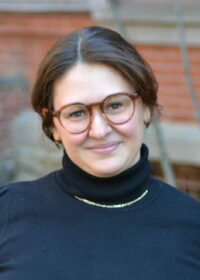
melissa.flamporis@pennmedicine.upenn.edu
Melissa Flamporis joined the Penn Memory Center as a clinical research coordinator in early 2023. Flamporis’ focus is on the MRI testing done in the ABC study. She earned her bachelor’s degree from Bryn Mawr College in 2021 with a major in psychology and a minor in child and family studies.
Melayna Frye
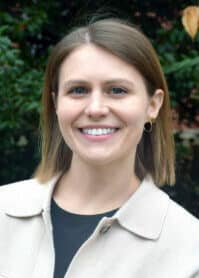
melayna.frye@pennmedicine.upenn.edu
Melayna Frye joined the Penn Memory Center as a clinical research coordinator in 2023 and is currently working on the AHEAD study. She earned her bachelor’s degree from Penn State University in 2018 with focuses on biology, English, and history. Since moving to Philadelphia in 2019, she has completed a post-baccalaureate certificate in pre-medicine from Drexel University in December of 2021 and is completing her certificate in emergency and disaster management through Thomas Jefferson University for May of 2023.
Anjali Gupta

215-898-0984
anjali.gupta@pennmedicine.upenn.edu
Anjali Gupta is a research coordinator at the University of Pennsylvania Perelman School of Medicine. She earned a bachelors of art in linguistics with a minor in chemistry from the University of Pennsylvania in 2022. She was involved in research ranging from radiology to psycholinguistics and was a fellow of the US Department of Education for Foreign Language and Area Studies program. Gupta joined the team upon graduation. She plans to go into geriatrics and palliative care and is thrilled to begin her career at PMC. She is passionate about end of life care, translation of patient experiences, and socioeconomic disparities in healthcare.
Kristin Harkins, MPH

215-573-9736
kristin.harkins@uphs.upenn.edu
Kristin Harkins joined the Penn Memory Center in 2007. As research program manager, Harkins oversees the research and administrative activities of the Penn Program on Precision Medicine for the Brain (P3MB). She graduated from the University of Pennsylvania’s master’s of public health program in 2017. She earned her undergraduate degree in psychology at Truman State University.
Danielle Hing

danielle.hing@pennmedicine.upenn.edu
Valerie Humphreys, MS

valerie.humphreys
@pennmedicine.upenn.edu
Valerie Humphreys works as a coordinator for the mCAPP study under Dawn Mechanic-Hamilton, PhD, ABPP/CN. Prior to her current position, she graduated from Drexel University with an MS degree in psychology. At Drexel, Humphreys examined the relationship between social and structural determinants of health and cognitive impairment in the context of neuroHIV.
Heidi Joyce

Melissa Kelley

215-662-2672
Melissa.Kelley@pennmedicine.upenn.edu
Melissa Kelley currently serves as a project manager working on the TRAILBLAZER-ALZ2 trial and helping to open new clinical trials at PMC. She also assists with on-boarding and training new CRCs as she is passionate about welcoming the next generation of coordinators to the research team. Melissa Kelley joined the Penn Memory Center in 2019 as a Clinical Research Coordinator for the ABC study focusing on the MRI sub-study. Prior to her work at PMC, she served as an undergraduate research assistant, working on studies involving transcranial magnetic stimulation (TMS) as an intervention for patients recovering from stroke. She earned her bachelor’s degree in exercise science and a minor in psychology from the University of Delaware in 2016. She is currently pursuing a masters in public health at UPenn.
Jackie Lane
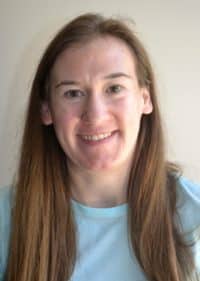
267-738-8547
jacqueline.lane@pennmedicine.upenn.edu
Jackie Lane joined the Penn Memory Center in 2017 as a Research Specialist for the ABC study focusing on the PET sub-studies. She is currently working as a project manager for Dr. Wolk’s observational studies, including ABC and ABCD2. She also helps with data analysis for Dr. Wolk’s lab. She earned her bachelor’s degree from Swarthmore College in 2016, double majoring in Biology and Cognitive Science. She is currently pursuing her Master’s in Public Health at UPenn.
Nicole Oliveira

215-760-7722
nicole.oliveira@pennmedicine.upenn.edu
Nicole Oliveira is from San Diego, California and joined the Penn Memory Center in December 2020. She is a clinical research coordinator and manager for the ABC Study and associated projects. Oliveira graduated with a BS in neurobiology, physiology & behavior and a minor in psychology from the University of California, Davis. She is currently pursuing her Master of Public Health degree at Penn and will graduate in December 2024. Oliveira is passionate about bringing a public health approach to the fields of neurology and behavioral health, as well as using behavioral economics to encourage healthy decision-making.
Daniel Papa

daniel.papa@pennmedicine.upenn.edu
Daniel Papa joined the Penn Memory Center in 2023 as a clinical research coordinator for the Mismatch Study. Papa graduated with his BS in psychology from West Chester University in 2021. As an undergraduate, Papa was involved in research projects that examined how mindfulness-based traits can be used as protective factors against psychopathology. After his involvement in undergraduate research, Papa became eager to explore other avenues of research pertaining to neuroscience and began working at Tufts University as a research technician in the Byrnes-Vassoler lab. His research involvement included examining the impact of opioids on prenatal brain development as well as investigating the effects of psychedelic compounds on neural development. In the future, Dan hopes to pursue his PhD in behavioral neuroscience or clinical psychology.
Francisco Rivera, MS

215-746-3949
francisco.rivera@pennmedicine.upenn.edu
Francisco Rivera is a project manager for ADNI and AHEAD studies. Prior to working at PMC, he worked in quality assurance at the Clinical Cell and Vaccine Production Facility at University of Pennsylvania. He earned his bachelor’s degree in biology and microbiology at the University of Puerto Rico and has master’s degree in molecular biotechnology from the University of Houston-Clear Lake.
Elizabeth Robinson

Lizzy Robinson joined the Penn Memory Center in October of 2022 as a clinical research coordinator for the Longitudinal Early-onset Alzheimer’s Disease (LEADS) Study. Before coming to PMC, she worked as a clinical research coordinator for Penn’s Division of Rheumatology. Robinson earned her bachelor’s degree in psychology from Shippensburg University and her master’s in psychological and brain sciences from Boston University. Her interests include exploring disparities in healthcare, cognitive testing, and patient care.
Laura Schankel, MS

215-906-7519
Laura.schankel@pennmedicine.upenn.edu
Laura Schankel joined the Penn Memory Center in 2018 as a clinical research coordinator and is currently working as the project manager for the ABC study and associated NIH funded research projects. During her time at PMC, Schankel has served as a research coordinator for the LEADS, Pegasus, ADNI3, and TRAILBLAZER-ALZ-2 studies. Before coming to PMC, Schankel worked at the Children’s Hospital of Philadelphia where she focused her research on exploring approaches to optimize treatment for individuals with comorbid mental illness and HIV/AIDS. She earned her bachelor’s degree in biology and anthropology from Lehigh University and has a master’s degree in psychology from Southern New Hampshire University.
Miranda Targum

267-357-3452
miranda.targum@pennmedicine.upenn.edu
Miranda joined the Penn Memory Center in July of 2023 as a clinical research coordinator for the ABC study. She received her bachelor’s in science in neuroscience from Temple University. Prior to joining the PMC, Miranda worked as an intramural research trainee at the National Institute on Drug Abuse, NIH where she utilized in vivo calcium imaging in the nucleus accumbens in rats to understand how dopamine receptors modulate addiction-related behaviors. She has also worked as a research assistant in a neurochemistry and cognition laboratory where she studied neurocognitive aging in rodents. Miranda is excited to pursue clinical research with the PMC!
Communications and Outreach
Dalia Elsaid, MS
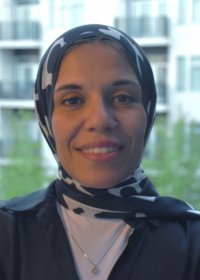
dalia.elsaid@pennmedicine.upenn.edu
Dalia Elsaid is a communications specialist at the Penn Memory Center. She holds a bachelor of science degree in political science from Cairo University in Egypt and a master’s degree in journalism from West Virginia University. Prior to her current role, she served as a communications specialist at the West Virginia Clinical and Translational Science Institute in Morgantown, WV, and as a press and public affairs officer at the Canadian Embassy in Cairo, Egypt. In her current role, Elsaid is excited to leverage her experience in communications and storytelling to enhance the center’s outreach efforts and public engagement. She is passionate about increasing awareness of memory-related disorders and facilitating better access to resources for patients and their families. Outside of work, Elsaid enjoys spending time with her family and friends, traveling, and embracing new experiences, whether it’s learning to play a new instrument or engaging in various outdoor activities.
Morgann Adams, MS

(445) 272-9135
morgann.adams@pennmedicine.upenn.edu
Morgann Adams is an assistant outreach manager at the Penn Memory Center. In 2017, Adams graduated from Spelman College with a bachelor’s of science in chemistry. She then completed her master’s degree in interdisciplinary health science at Drexel University. Adams is passionate about bettering health outcomes, especially for underrepresented populations, and advocating for equitable health care access. Prior to working with the Penn Memory Center, she worked on the outreach team as an analyst for a mobile pediatric unit in Atlanta, GA. With her current role, Adams is excited to work with the Philadelphia community to increase minority representation and participation in Alzheimer’s disease and dementia related research studies.
Leah Barnes

leah.barnes@pennmedicine.upenn.edu
Leah Barnes is an outreach coordinator with a focus on clinical research at the Penn Memory Center. In 2021, Barnes graduated from University of Maryland- College Park with a B.S. in Community Health.
Prior to working with the Penn Memory Center, she worked in health communications for the Horowitz Center of Health Literacy in Maryland, and then as an outreach senior analyst for the Aetna Medicare team in Jacksonville, FL.
Barnes is passionate about increasing the health education of community members, improving access to quality care, and advocating for ethical and safe care, especially for seniors and marginalized communities. Hailing from Philadelphia, Barnes is most excited to be educating on and connecting local Philadelphians to advancements in Alzheimer’s research and creating meaningful relationships within the local community.
Andrew Beltran

andrew.beltran@pennmedicine.upenn.edu
Andrew Beltran is an outreach coordinator at the Penn Memory Center. In 2023, Beltran graduated from Haverford College with a Bachelor of Arts in Spanish with a Latin American, Iberian and Latinx Studies Concentration.
Beltran is interested in bettering accessibility to healthcare and resources to underrepresented populations, with a particular emphasis on the Latino population. Prior to working at the Penn Memory Center, he worked under Dr. Adriana Perez as a research assistant for her study, Tiempo Juntos Para Nuestra Salud.
In his current role, Beltran is ecstatic to continue working with Philadelphia’s Latino population and to increase information and research opportunities related to Alzheimer’s disease and dementia.
Terrence Casey

215-898-9979
terrence.casey@pennmedicine.upenn.edu
Terrence Casey is the Director of Communications and Outreach for the Penn Alzheimer’s Disease Research Center, the Penn Memory Center, and the Penn Program on Precision Medicine for the Brain. He graduated from Penn State University with a degree in journalism and worked as a journalist and editor before joining PMC in 2015.
He is editor of the Penn Memory Center website and the InSight Weekly newsletter and oversees PMC’s presence on Facebook, Twitter, YouTube, and LinkedIn. He also edits Making Sense of Alzheimer’s, My Typical Day, Whealthcare, and JasonKarlawish.com. He represents the PMC team on the Philadelphia Financial Exploitation Prevention Task Force, the Philadelphia Elder Abuse Multidisciplinary Team, and Together for West Philadelphia. He is responsible for overseeing the recruitment and retention of research participants with a particular emphasis on increasing diversity in PMC’s longitudinal studies. Terrence also leads a yearlong training program to develop young professionals for work in outreach and communications.
Marie Ingegneri
267-809-7377
marie.ingegneri@pennmedicine.upenn.edu
Marie Ingegneri is an events assistant at PMC. She contributes to the planning and managing of PMC events, including the Arts On The Mind Festival, the annual Research Partner Thank You Luncheon as well as community events, small-group meetings and more. Her recent experience comprises a 13-year marketing position at Morris Arboretum where she created PR, promotions, partnerships and marketing events, such as the annual Scarecrow Design Contest. Additionally, she received her MBA from Drexel University and her BS from The College of New Jersey.
Jake Johnson

jake.johnson@pennmedicine.upenn.edu
Jake Johnson is a communications assistant at the Penn Memory Center. Originally from Brooklyn, Johnson graduated from Vassar College with a bachelors in sociology. During his time at Vassar, Johnson was a research assistant for the philosophy podcast Hi-Phi Nation. He also worked as a fellow for Insider’s health vertical, reporting on health and fitness.
Meghan McCarthy

meghan.mccarthy@pennmedicine.upenn.edu
Meghan McCarthy is a communications intern at the Penn Memory Center. She has collaborated on neurodegenerative disease research at Children’s Hospital of Philadelphia, lung cancer research at Massachusetts General Hospital, and global health initiatives. McCarthy is a recent graduate from Villanova, where she studied psychology and biomedical ethics as a pre-med student. Having a close family member with dementia, McCarthy is passionate about sharing authentic stories and lived experiences of those living with Alzheimer’s disease and related dementias (ADRDs). She is most interested in health equity, medical art, and aspires to be a pediatric neurologist.
Patient Care
Lauren Bennett

Lauren Bennett joined the Penn Memory Center in 2018 as a patient services associate. Prior to joining the PMC team, she worked for a prominent law firm, helping disabled citizens fight to get their social security benefits. She is currently studying nursing, with plans to become a neonatal intensive care unit nurse.
Courtney Coulter

215-614-1829
courtney.coulter@uphs.upenn.edu
Courtney Coulter is a program manager who manages the integration of the clinical and research practices of the PMC. With a background in customer service, Coulter has spent more than four years overseeing medical records, managing physician credentialing, and interacting with patients on a daily basis at a nursing and rehabilitation center. She earned her associate degree in business administration in 2013 and a bachelor’s of science degree in health administration in 2015 from Gwynedd Mercy University. She joined PMC in 2016 as a new patient coordinator. Coulter hopes to pursue a master’s degree in health administration.
Sabrina Daniels
sabrina.daniels@pennmedicine.upenn.edu
Sabrina Daniels is a patient care coordinator. Daniels was born and raised in New York City and relocated to Philadelphia. She worked in the Emergency Department at the Hospital of the University of Pennsylvania prior to joining the Penn Memory Center. She attended John Jay College of Criminal Justice before transferring to Thomas Edison State University where she studied for a BS in human services.
Research Interns
Heta Patel

heta.patel@pennmedicine.upenn.edu
Heta Patel is a member of the Penn Program on Precision Medicine for the Brain (P3MB) research team. She is a medical student at the University of Pennsylvania who is interested in medical humanities, end-of-life care, bioethics, and policy. Patel has a background in leukodystrophy research as well as supporting populations vulnerable to violence in the US and abroad. She currently serves as the Penn Med Delegate to the American Medical Association.
Project Management & Strategic Support
Kathryn Jedrziewski, PhD
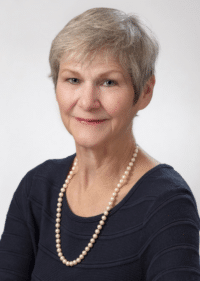
215-898-2445
jedrzmk@mail.med.upenn.edu
Dr. Kathryn Jedrziewski, deputy director of Penn’s Institute on Aging (IOA) since 2001, also serves as Alzheimer’s Disease Research Center (ADRC) Administrator. In that role, she is active in a nationwide network of fellow Center administrators on issues relating to the administration of NIH/NIA funds.
Dr. Jedrziewski received her PhD from the University of Pennsylvania in 1991. She has worked in gerontology and geriatrics for over thirty years.
Business & Administrative Support
Maria Crudele

215-349-8226
maria.crudele@uphs.upenn.edu
Maria Crudele joined the Penn Memory Center in 2007 as the Executive Assistant for PMC co-directors Dr. Jason Karlawish and Dr. David Wolk. Maria handles all administrative and purchasing functions in addition to assisting in project management, event coordination, and financial activities. She has an AS degree in Business Administration from Peirce College.
Information Technology & Database Management
Christopher Ernst
ernstch@pennmedicine.upenn.edu
Chris Ernst is an information technology specialist at the Penn Memory Center. Ernst supports both the CNDR lab and the Penn Memory Center with updates, tweaks and fixes to forms and data residing in the Integrated Neurodegenenerative Disease Database and makes sure staff IT problems and requests are handled quickly and thoroughly.
Yanping Xiong, MS

yanping.xiong@pennmedicine.upenn.edu
Yanping Xiong joined the Data Management and Statistical Core within the Alzheimer’s Disease Research Center (ADRC) and the U19 Center as a senior data manager. She is the main contact person for database requests related to the ADRC.
Xiong received her master’s in computer science from Marquette University and started her career at a clinical trial software company where she mainly focused on web and database development. She then spent over five years in the Bioinformatics Facility within the Penn Wistar Institute. Her main work there included web application development, database development, and scientific programming. She also worked in an IT department at a financial services company before joining our Data Management and Statistics Core.
Affiliated Researchers
Anil Wadhwani, MD, PhD

Anil Wadhwani, MD, PhD, is an Instructor in Neurology and a post-doctoral fellow in the Penn Bioinformatics in Neurodegenerative Disease (BiND) Lab. Anil studies genetic and epigenetic factors that contribute to the spread of tau between brain regions. He is also particularly interested in patients that are cognitively resilient despite having brain pathology. Anil completed Neurology residency at the Hospital of the University of Pennsylvania and medical school at Northwestern University, where he modeled genetic risk factors for neurodegenerative and neurodevelopmental diseases using gene editing techniques in patient-derived stem cells. His work has been supported by NIH-funded pre-doctoral (F30) and post-doctoral (R25) awards. In the clinic, Anil hopes to apply his scientific expertise to identify novel treatments for patients with the most severe disease.
Justin Clapp, PhD, MPH

Justin Clapp is assistant professor of anesthesiology and critical care at the Perelman School of Medicine and associated faculty in anthropology at the University of Pennsylvania. Dr. Clapp is a linguistic/medical anthropologist who uses qualitative methods along with anthropological theory to examine issues in healthcare communication, medical decision making, and empirical bioethics. Much of his recent work has focused on better understanding how providers and patients decide on preference-sensitive, elective treatment options in perioperative contexts (surgery, anesthesia, intensive care). The goal of this work is to develop models of decision making better tailored to the intricacies of provider-patient interaction.
He is also currently researching the communication of pain in clinical settings, the intersection of medicine and social determinants of health, the norms and practices of research ethics review, and several topics in medical education. Dr. Clapp teaches courses in the Anthropology Department and the MPH program, and he collaborates with investigators across the Perelman School of Medicine on qualitative projects. He received his PhD in anthropology from the University of Pennsylvania and his MPH from the University of Pennsylvania Perelman School of Medicine.
Christos Davatzikos, PhD
Christos Davatzikos, PhD is the Wallace T. Miller, Sr. professor of radiology and electrical and systems engineering in the School of Engineering and Applied Sciences and in the Perelman School of Medicine. As director of the Section of Biomedical Image Analysis, Dr. Davatzikos is interested in many areas related to medical image analysis and computing, including image segmentation and registration, multiparametric image analysis, as well as the use of machine learning and pattern recognition in medical imaging. His group is affiliated with many clinical studies employing imaging as a biomarker of diseases such as Alzheimer’s, schizophrenia, diabetes, and cancer. Dr. Davatzikos earned his B.S. in electrical engineering and computer science from the National Technical University of Athens and a PhD in electrical and computer engineering from Johns Hopkins University.
John A. Detre, MD
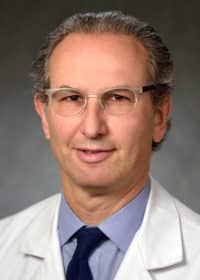
John A. Detre is professor of neurology and radiology at the Perelman School of Medicine where he is founding director of the Center for Functional Neuroimaging in the Department of Radiology and serves as vice chair for research in Neurology. He received his bachelor’s and medical degrees from Yale, completed fellowships in biophysics at both Carnegie Mellon University and the University of Pennsylvania, and completed neurology residency at Penn, where he has been on the faculty since 1993. Dr. Detre is also among the core faculty of the Center for Cognitive Neuroscience, currently serving as interim co-director of this Center.
Dr. Detre has been continuously funded by NIH since 1993 and is the author of over 250 original manuscripts. Drawing upon his interdisciplinary training, collaborations, and leadership skills, Dr. Detre has provided core support for neuroimaging research on the Penn Campus through an NIH funded P30 Center Core in Neuroscience Neuroimaging that is now in its eleventh year and through the Center for Magnetic Resonance and Optical Imaging, where he leads a core on imaging brain structure and function. Dr. Detre has also been extremely active in mentoring of trainees from both biophysical and biomedical backgrounds. He has been the recipient of a Mid-career Award in Patient Oriented Research and Mentoring and an NIH training grant in neuroscience neuroimaging. He currently serves as principal investigator of an NIH training grant targeting the career development of academically oriented neurology residents and fellows, and he serves as a mentor for several trainees and junior faculty at Penn and neighboring institutions pursuing careers in biomedical neuroimaging.
Edward B. Lee, MD, PhD

edward.lee@pennmedicine.upenn.edu
Dr. Lee is the associate director of the Penn Alzheimer’s Disease Research Center and co-director of the Institute on Aging. He is also an attending physician at the Hospital of the University of Pennsylvania and associate professor in the Department of Pathology and Laboratory Medicine.
Dr. Lee is currently principal investigator of the Translational Neuropathology Research Laboratory supporting studies on the molecular neuropathology of Alzheimer’s disease, frontotemporal degeneration and amyotrophic lateral sclerosis, recently discovering a novel form of dementia called vacuolar tauopathy. Dr. Lee graduated Phi Beta Kappa and with honors from Stanford (1997), and obtained his MD. and PhD. degrees from the University of Pennsylvania (2005) where he studied amyloid pathology in various experimental models under the mentorship of Virginia M.-Y. Lee, PhD.
Karen Glanz, PhD, MPH

Karen Glanz is George A. Weiss University Professor, professor of epidemiology in the Perelman School of Medicine, professor of nursing in the School of Nursing, and director of the University of Pennsylvania Prevention Research Center. She is a Senior Fellow of the Leonard Davis Institute on Health Economics, the Center for Public Health Initiatives, and the Penn Institute for Urban Research, and a Distinguished Fellow of the Annenberg Public Policy Center. She was previously at Emory University (2004-2009), the University of Hawaii (1993 to 2004), and Temple University.
Allison K. Hoffman, JD

Allison Hoffman, an expert on health care law and policy, examines some of the most important legal and social issues of our time, including health insurance regulation, the Affordable Care Act, Medicare and retiree healthcare expenses, and long-term care. Her research aims to bring greater descriptive and analytical clarity to the purposes of health regulation and to deepen our understanding of how health insurance design and regulation both reflects and shapes social consciousness around risk. Hoffman co-edited the Oxford Handbook of U.S. Health Law with I.Glenn Cohen and William M. Sage, which offers the most comprehensive review of U.S. health law in the post-ACA era. Hoffman was awarded the Robert A. Gorman Award for Excellence in Teaching in 2018-19. Her current work examines the legality and ethics of the adoption of Medicaid work requirements, considers the future of long-term care and end of life care policies and regulation, and critiques how economic theory has overly shaped the development of health law and policy.
Joe Kable, PhD

Joe Kable, PhD is the Baird Term Associate Professor of Psychology at Penn. Research in his lab is concerned with how people make choices, and the neurophysiological mechanisms underlying decision-making. This work combines approaches from experimental economics, the psychology of judgment and decision-making, and social and cognitive neuroscience.
Recently Dr. Kable has used fMRI to show how the subjective value people place on immediate and delayed rewards is represented in a common neural currency. Some broad questions motivating his current research include: How seriously do people’s choices deviate from rational choice theory, and what do the neural value signals in such situations help explain about these deviations? How does decision making differ across individuals, and what are the sources—psychological, genetic, neural—of such individual differences?
Dr. Kable earned his B.S. in chemistry from Emory University and his PhD in neuroscience from University of Pennsylvania.
Emily Largent, PhD, JD, RN

215-573-8106
elargent@pennmedicine.upenn.edu
Dr. Emily Largent is an assistant professor of medical ethics and health policy at the Perelman School of Medicine and a Senior Fellow at the Leonard Davis Institute of Health Economics. Dr. Largent studies the ethics of human subjects research. Her current research focuses on the ethics of paying research participants for their contributions to clinical research and on the ethical and regulatory implications of integrating clinical research with clinical care. Her work — which combines normative, empirical, and legal methods — has been published in the Hastings Center Report, the American Journal of Bioethics, and the Yale Journal of Health Policy, Law, and Ethics, among other journals. She co-authored Clinical Research Ethics Consultation: A Casebook (Oxford University Press).
Dr. Largent received her doctor of philosophy in health policy from Harvard University and her juris doctor degree from Harvard Law School. Prior to that, she received her bachelor’s of science in nursing from the University of Pennsylvania School of Nursing and completed a fellowship in the Department of Bioethics at the National Institutes of Health.
Corey McMillan, PhD

Corey McMillan, PhD is associate professor of neurology at the Perelman School of Medicine and a member of the Neuroscience Graduate Group and Institute for Translational Medicine and Therapeutics. Dr. McMillan holds a bachelor’s degree in psychology and cognitive neuroscience from Temple University, a master’s of science in psycholinguistics from the University of Edinburgh, and a PhD in psychology from the University of Edinburgh.
Dr. McMillan’s research focuses on identifying cognitive and biological markers of neurodegenerative diseases like frontotempoeral lobar degeneration, amyotrophic lateral sclerosis, Alzheimer’s disease, and Parkinson’s disease. His cognitive research focuses on the social and decision-making mechanisms that contribute to language processing deficits associated with neurodegenerative diseases. His biological research uses neuroimaging, genetics, and biofluids in an effort to improve early diagnosis and predict which protein is causing a disease in patients. Dr. McMillan’s biomarker research leverages sophisticated bioinformatic and statistical approaches to integrate multiple data sources in effort to identify precision medicine approaches for treating individual patients. Ultimately, Dr. McMillan intends to integrate cognitive and biological tests to develop powerful methods for identifying patients for entry into clinical trials and for measuring the efficacy of drug treatments in the context of clinical trials.
Andrew Peterson, PhD
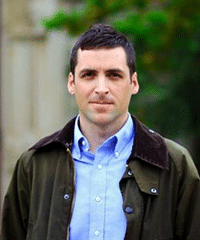
Andrew Peterson, PhD, is an assistant professor of philosophy at George Mason University, a Greenwall Faculty Scholar, and a guest researcher at the National Institutes of Health Department of Bioethics. Previously, he was a Vanier Canada Graduate Scholar in the Rotman Institute of Philosophy and The Brain and Mind Institute at the University of Western Ontario, Canada.
Dr. Peterson’s research centers on bioethics and the philosophy of neuroscience, with specialization in ethical and epistemological issues related to the scientific study of consciousness. He has collaborated with the Penn Memory Center on several publications, including ethical concerns in treating patient with disorders of consciousness and allocating scarce medical resources during the COVID-19 pandemic.
Shana D. Stites, PsyD, MA, MS

Shana D. Stites, PsyD, MA, MS, is an assistant professor in the Department of Psychiatry at the University of Pennsylvania. As a clinical psychologist and researcher with the Penn Project on Precision Medicine for the Brain (P3MB), Dr. Stites’ research focuses on advancing diagnosis and treatment of Alzheimer’s disease dementia. The goal is to understand ways to promote quality of life and psychological wellbeing. This includes understanding the impacts of the disease on individuals who may be directly affected by pathology as well as their family members. As part of this work, Dr. Stites has a special focus on better understanding how aspects of identity, such as age, gender, and race, operate as determinants in the disease experience. Understanding these features of the disease experience may offer insights into disease-mechanisms and into development of interventions that help limit burdens of the disease.
Dr. Stites is a graduate of the National Institute on Aging’s (NIA’s) Butler-Williams Scholars Program, has a master’s of arts in sociology from Lehigh University, and earned a doctorate in clinical psychology from Chestnut Hill College with a concentration in psychological assessment and special focus on the role of multicultural diversity in clinical practice and representation in research. Dr. Stites clinical training includes completion of a doctoral internship at Corporal Michael J. Crescenz VA Medical Center in Philadelphia, PA and post-doctoral training in the Penn Memory Center and Department of Neurology at the University of Pennsylvania’s Perelman School of Medicine.
Sharon Xie, PhD

Dr. Sharon Xie is a professor of biostatistics in the Department of Biostatistics, Epidemiology and Informatics at the Hospital of the University of Pennsylvania and director of the Biostatistics Core of Penn’s Alzheimer’s Disease Core Center (ADCC).
Paul Yushkevich, PhD
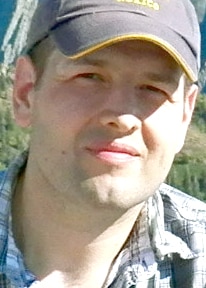
Paul Yushkevich, PhD, is a professor in the Department of Radiology and a member of the Bioengineering Graduate Group. His research focuses on developing novel computational methodologies for the analysis of biomedical imaging data.
Dr. Yushkevich is particularly interested in analysis techniques that are tailored to specific anatomical structures. His key work in this area involves automatic segmentation and morphometry of the hippocampal formation (HF) in magnetic resonance imaging (MRI). The HF plays a central role in memory function and is a site of early neurodegeneration in Alzheimer’s disease.
Dr. Yushkevich holds a PhD in computer science from University of North Carolina Chapel Hill.
